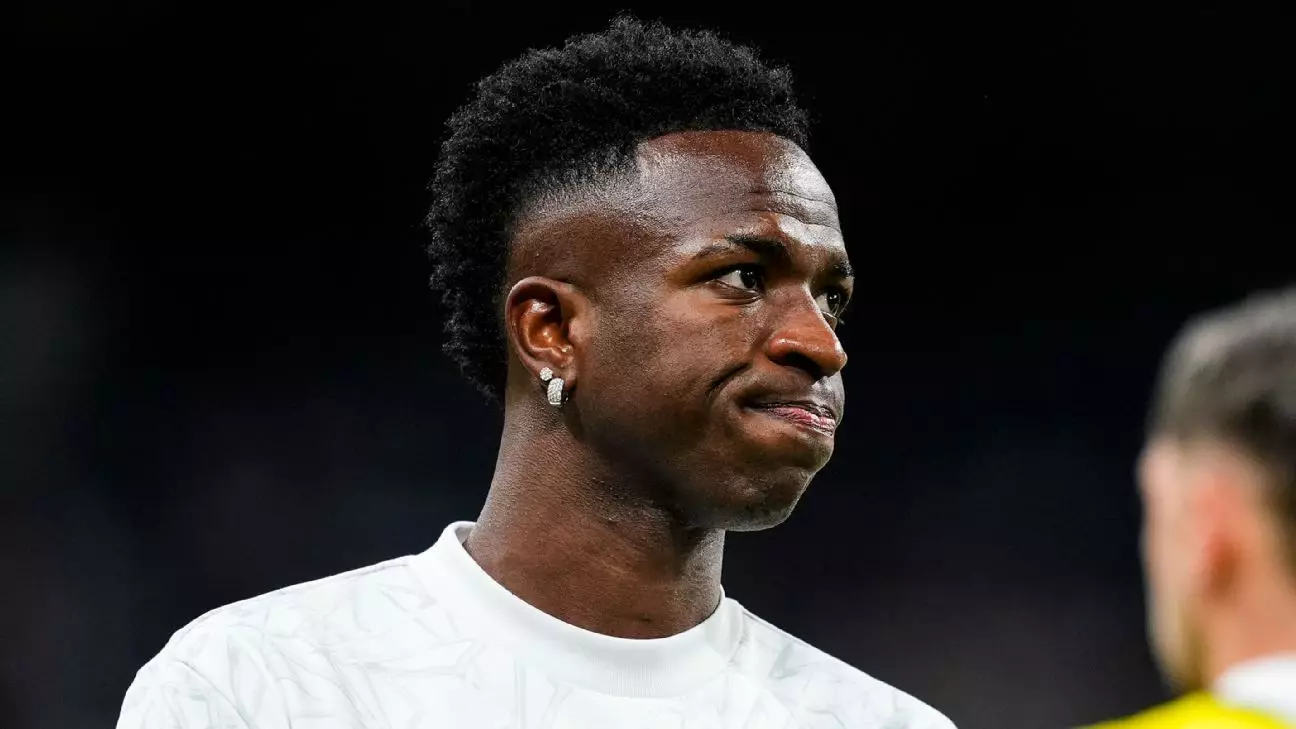In a shocking turn of events, Real Madrid forward Vinícius Júnior found himself in a bitterly contested race for the 2024 men’s Ballon d’Or, ultimately losing to Manchester City’s Rodri. While many fans and analysts anticipated Vinícius’s triumph, the announcement that he finished as runner-up ignited a wave of criticism from fans, teammates, and the media alike. At just 24 years old, Vinícius has emerged as one of football’s brightest stars, yet the decision to award the prestigious accolade to Rodri instead of him left a sour taste for many who believed that the Brazilian’s stellar performance in both LaLiga and the Champions League was deserving of the highest honor in the footballing world.
The disappointment among Vinícius’s peers was palpable as numerous teammates from Real Madrid and the Brazil national team rushed to his defense after the announcement. Real Madrid had notably boycotted the event organized by France Football and UEFA as a protest against what they deemed as an unfair voting process. Players like Eduardo Camavinga and Éder Militão took to social media to express their unwavering support for Vinícius, emphasizing that award ceremonies do not define an athlete’s talent or legacy. Camavinga’s remark about “football politics” encapsulates the frustration felt by many regarding how the voting process can overshadow the achievements of a player. With statements expressing admiration and solidarity, his teammates highlighted the notion that Vinícius’s value cannot be evaluated merely by the ballots cast or awards earned.
This controversy also sheds light on a broader, systemic issue within how the Ballon d’Or is awarded. Since Kaká’s victory in 2007, no Brazilian has claimed the trophy, despite having world-class talents rising to prominence. Neymar’s close calls in 2015 and 2017 ended in disappointment, serving as a testament to the notion that the award can sometimes feel dictated by underlying biases. Comments from Brazilian forward Richarlison resonate here; he acknowledged the nonsensical nature of the voting criteria and pointed out that while Rodri is undoubtedly a talented player, Vinícius’s contributions to his club and nation deserved equal recognition. In a world where football is often celebrated for its excitement and unpredictability, the incongruity between performance and recognition can provoke outrage among fans and players alike.
Despite the setback, Vinícius Júnior remains a resilient figure. His public response, claiming that “they aren’t ready” for what he can deliver, encapsulates a fiery determination that sets him apart. His talent was instrumental in leading Real Madrid to an impressive season, which included a fine tally of 24 goals across all competitions culminating in crucial performances during the Champions League finals. Such moments solidify his place among football’s elite, irrespective of the awards on the mantle. His commitment and capability to rebound from setbacks will be vital for his career, as he navigates the often turbulent waters of public and media scrutiny.
As the football world processes the outcome of this year’s Ballon d’Or, it begs the question: how can the assessment of players be made more equitable? The stories of those overlooked—like that of Vinícius Júnior—are compelling narratives of passion, struggle, and excellence. There needs to be an acknowledgment from governing bodies to rethink criteria and processes to ensure that accolades reflect the true merit of players. More transparency and inclusivity in the voting process could help, encouraging dialogue about the need to recognize extraordinary talent, especially when they play key roles in historic campaigns.
Vinícius Júnior’s journey is far from over, and as he receives support from both peers and fans, it’s clear that the measure of a player’s worth extends beyond the confines of awards. The backlash against the 2024 Ballon d’Or results is indicative of a larger conversation about recognition in sports—a conversation that must continue if we are to celebrate the deserving talents of the beautiful game. Vinícius embodies resilience, and while accolades may come and go, his growth as a player and his contributions to football will indelibly mark his legacy.

